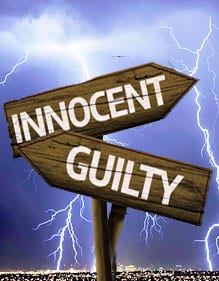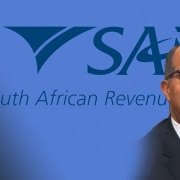|
Getting your Trinity Audio player ready...
|
Dear Corruption Watch: My local councillor is being investigated for his role in corrupt tender processes in our municipality. A senior branch member of our political party told me that I should not discuss the allegations or charges because the councillor is “innocent until proven guilty”.
I understand that this is an important part of criminal trials, but what is its relevance in public discussions around allegations of corruption?
Tired of Obfuscation
Dear Tired of Obfuscation
The presumption of innocence is a well-established and important part of our criminal law. The constitution provides that every accused person “has a right to a fair trial, which includes the right to be presumed innocent”.
This right is also enshrined in the UN Declaration of Human Rights. The legal maxim places the burden of proof on the prosecution to provide sufficient admissible evidence that the accused is guilty beyond reasonable doubt.
However, it is also a phrase that can be manipulated to stifle public discussion and hinder accountability. Loyal supporters of individuals or members of political parties may offer unwavering support for an accused for emotional and ideological reasons.
 Even where the allegations are serious and credible, the plea that a person is “innocent until proven guilty” can be used to avoid dealing with the substance of the issues. Implicit in this approach is the view that until a person is convicted in a court, they may not be criticised.
Even where the allegations are serious and credible, the plea that a person is “innocent until proven guilty” can be used to avoid dealing with the substance of the issues. Implicit in this approach is the view that until a person is convicted in a court, they may not be criticised.
In 2010, the Northern Cape finance, economic development and tourism MEC John Block was arrested on charges of alleged tender fraud. The ANC stated that it would not ask Block to step down from his party position for the duration of the criminal trial and adopted the stance that he was “innocent until proven guilty”.
More famously, in 2005, President Jacob Zuma’s former financial adviser Schabir Shaik was sentenced on two counts of corruption and one of fraud arising out of his relationship with Zuma.
Shortly afterwards, Zuma (then the deputy president) argued in parliament that the constitution guarantees the presumption of innocence and that it was wrong of any person, opposition politician or the media to take a view on an issue before the conclusion of a criminal trial.
Discussion and evaluation is allowed
While an accused will be entitled to a fair trial or disciplinary process, this does not mean that the public cannot consider and evaluate the charges and evidence in the matter.
This is not to say that we should rush to give currency to allegations of corruption wherever they arise. The facts that emerge at a trial will often cast a different light on the allegations reported in the media or on the original charge sheet. Ultimately, the presiding judge will determine whether the evidence provides the necessary proof.
We should also be conscious of the difference between allegations of corruption in the media, and instances where our National Prosecuting Authority has made a decision to formally charge a person for a corruption-related offence. These decisions are serious, because the NPA will only proceed with a prosecution where there is a prima facie case and all investigations by the police have been completed. Different standards apply to media reporting or other disciplinary processes.
The principle of the presumption of innocence does not absolve the South African public of our responsibility to investigate, evaluate and take a position on allegations of corruption. We should do so responsibly and in light of all the available evidence.
The fact that a person has not yet been convicted in a court does not mean that we may not form opinions on what is acceptable conduct by our public officials.
• Do you suspect corruption? Write to the Corruption Watch experts at letters@businesstimes.co.za. Please mark your letter ‘Dear Corruption Watch’.
• This article was first published in Sunday Times: Business Times








